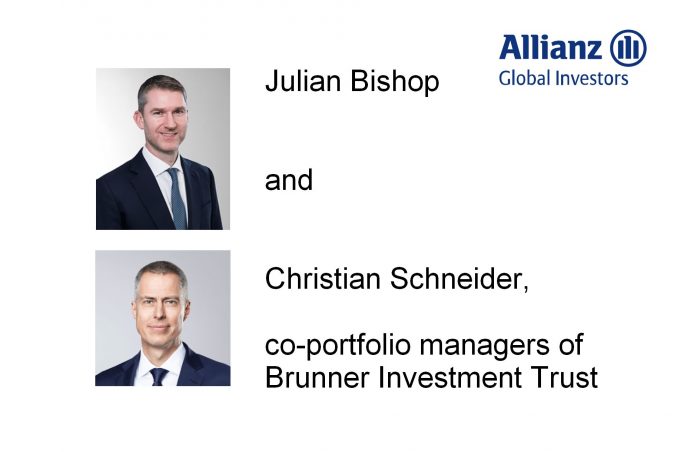Brunner has published results covering the 12 month period ended 30 November 2024. The NAV return for the period was 17.9%, underperforming its benchmark (70% FTSE World Ex. UK / 30% FTSE All-Share), which returned 23.6%. However, a strongly narrowing discount meant that the share price return was 39.3%.
Addressing this underperformance, the managers said: “Most of the underperformance is best explained at the stock level within the Financials and Technology sectors. Both of these important sectors roared ahead. Our holdings participated but did not keep up. To a large extent, this reflects our balanced approach, but also our bias to prudency. For example, within the diverse Financials sector our skew is to higher quality, recurring fee-based business models. This year saw the outperformance of lower quality, more asset intensive businesses like traditional banks and insurers. We had exposure here, but not enough to keep up with the market. Where we have exposure, it is generally at the less levered and less risky end of the spectrum. This means that we always run the risk of underperforming in a cyclical rally, as happened this year, but we should be better protected on the downside in the event of a cyclical downturn.”
Carolan Dobson, the chair of the trust, said: “Ultimately, our ‘All-Weather’ approach does not mean chasing some kind of absolute return or constant outperformance of the benchmark – rather it means the pursuit of consistent performance, delivered with a strong focus on risk management, finding companies with dominant market positions that the portfolio managers believe should provide steady long-term returns for shareholders.”
Revenue earnings per share for the year rose by 3.8%, from 26.4p to 27.4p. From this, the board is proposing a covered dividend of 23.75p. This represents an increase of 4.6% over the 2023 dividend which was 22.7p and means Brunner has now reached 53 years of consecutive dividend increases, remaining in place near the top of the AIC’s Dividend Heroes list.
The discount narrowing was achieved by promoting the trust rather than buying back shares [This is an important message that some other trusts need to be mindful of. Addressing the supply/demand imbalance for shares that creates discounts means trying to stimulate demand too – many more trusts and their managers should devote more resources to building the fan base of the investment trust sector.]. Brunner was able to issue shares for the first time in a very long time. The board very carefully considered the issuance of new ordinary shares when the shares began to trade at a premium and issued when it became clear that it would be destabilising to existing shareholders not to go ahead.
BUT : Brunner’s marketing push transformed its prospects
